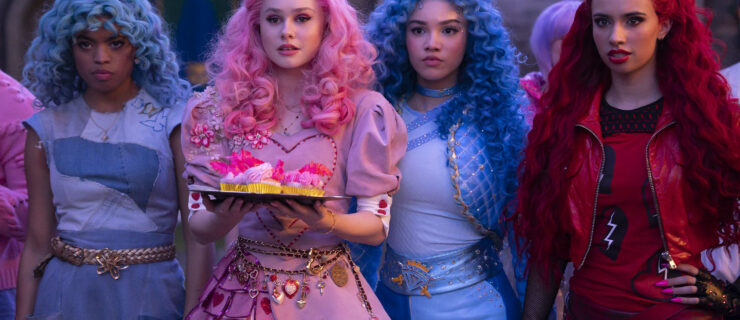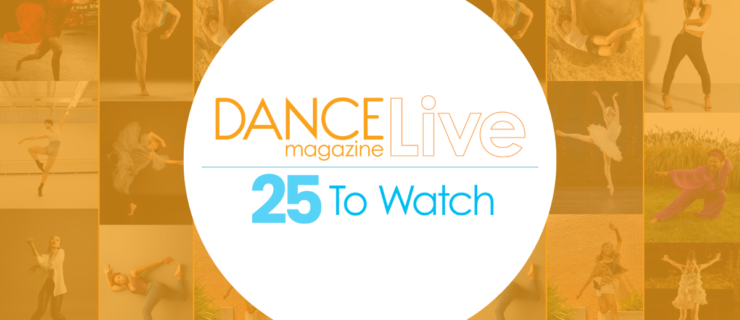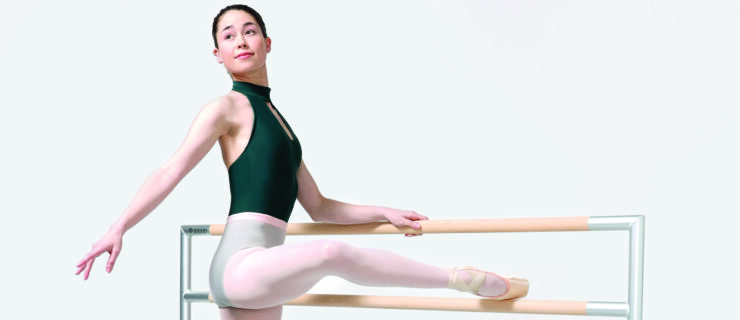Katie Callaway's Memoir
“If for one dance, I’m gonna be somebody” – Kings of Leon
I despised Letter Day. It was the one time of year that confirmed all of my self doubts and self-consciousness. Not for Emily, though. What was bad for me was excellent for her, and vice versa. She was the dancer of the family, and I was the smart one. We hated each other for it. I’m not sure if anyone knew how badly I wanted to be like my younger sister. She definitely didn’t.
Letter Day my junior year of high school, her sophomore year, was the last time I let myself get lost in Emily’s shadow; after thirteen years, it had to be. All the dancers were sitting on the scuffed hardwood floors of the practice studio surrounding our instructor (who happened to be my cousin), who was perched on her usual chair in the corner. Her announcements probably ranged from costumes to fees to extra practices to asking for a volunteer to pick up a small Heath blizzard from Dairy Queen for her. I wasn’t paying attention to any of it. My eyes flicked from the clock (it was 9:37 and counting) to the mirror to my sister. Emily was smiling, her chin-length auburn-brown hair glistening with sweat as hundreds of bobbi pins held it in place. At five foot nine, she stood out, and her bright blue eyes glittered with confidence. Anxiety began coursing through my veins, and I wanted nothing more than to get out of that room.
“Kelli has your letters at the front desk,” Jamie finally told us, as if we didn’t already know, adding, “And don’t even think about opening them until you get home. I don’t want anyone getting upset here.”
As I gathered my extra clothes and car keys, letter in hand, Emily rushed to my side to hurry me along. She wanted to leave as much as I did, but for a different reason: she already knew she was in all the extra dances. It was a guessing game for me.
I followed her to the icy parking lot, begging her not to say anything for the endurance of the car ride, which coincidentally lasted forever. She promised to keep quiet, but the suppressed grin on her face gave everything away. Blasting Kings of Leon, I tried to picture my name under Emily Callaway and above Miranda Frank, hoping to finally feel noticed. But when I got home and saw the names skip from Emily Callaway to Brenna Frank, I saw that Miranda had been replaced by her little sister again, too.
Everything started to change the next fall when I chopped off a foot of my hair. Emily had short hair her entire life, but I didn’t do it to be like her; that everyone soon thought we were twins ended up complimenting both of us. I needed a change, and to me, my wavy brunette hair reaching down more than halfway down my back had recently been more boring than beautiful.
One crisp October afternoon, my hairdresser came to my house, led me to a stool in our tiled sunroom, and proceeded to wrap a hair tie around my ponytail. She measured out twelve inches and, with the precision of a doctor, carefully snipped above the colored band.
“No, I can’t look at it,” I told her as she tried to hold the severed mass of hair in front of my eyes. “I need to see how what’s left on my head looks first.”
Glancing into the mirror at my new clavicle-length tresses was liberating. My hair had not been above my shoulders since fifth grade, and it was such a terrible look that I vowed never to cut my hair again. I abruptly turned around and asked if my hair could please go shorter.
My most beloved short-haired memory occurred a month or so later, by which point my hair was indeed shorter, now just below my chin and just too short to fit into a ponytail, with two streaks of bleach contrasting the mocha color of my natural hair. Jamie had hired a pair of professional choreographers, John and Alan, the same two who annually taught the entire competition team what always became the closing number of the recital. This year, however, they were here to teach musical theater. A small group. And I was in it.
John slid a disk into the mounted stereo system, and Matt Dusk’s jazz song “Back in Town” filled the room. While trying to configure beginning formations on three sets of white three-tiered stairs, normally used to surround the giant tree during the Christmas show, Alan directed me to the top of the stairs on the right. I stood quietly in my high-heeled character shoes, exchanging a curious glance with the dancer opposite me while he thought.
“Okay, this is what we’re going to have you and Frankie do,” he said as John, the more flamboyant of the two, demonstrated a succession of hip bounces, shoulder circles, and head rolls. “Have fun with it, and be sexy.”
Sexy was not my thing. It was an area of Emily’s expertise which had thus far sufficiently skipped my end of the gene pool; needless to say, I was a little apprehensive. Trying not to fall off the back of the stairs in the heels was hard enough (although one time I really did fall), but to be sexy, too? I figured I might as well make a fool of myself to humor John and Alan, so I went for it. My hair was down, and as I rolled my head to the right, releasing my neck, it swung gently around my face and fell back perfectly into position. Nothing had ever felt better.
After class that night, as I was finishing my homework and about to head for the shower, my mom unglued the phone from her right ear and put it back in the receiver.
“That was Jamie, and she said that tonight was the best she’s ever seen you in class. She said you looked so confident.”
I smiled at her, tight-lipped and sarcastically, as if there were no way those words escaped my cousin’s mouth, but I knew it was true, and I knew I was breaking out of my shell.
Letter Day that year may not have even happened; I can’t remember anything about it. Though I didn’t get into every single extra dance, I didn’t care. This was my senior year, and comparing myself to Emily would have ruined the fun.
We landed at the Orlando airport in early July (at this point I now had Victoria Beckham’s angled, platinum bob), and the first things I noticed were the exposed pipes, broken drywall, and loose cords hanging from the ceiling—it was a disaster. Hoping the sight wouldn’t be an indication of what would happen at nationals, the final competition of the year, I picked up my suitcases and hauled my luggage to the bus that would drop us at the Swan and Dolphin Hotel. The prospect of Epcot was as almost exhilarating as the thought of dancing for the last time with girls who I had known for the past decade or more, some of my best friends.
Later in the week during a session of poolside lounging between practices, Emily turned to me, adjusting her oversize tortoise-rimmed sunglasses, and asked if I was sad.
“What do you mean?” I asked, knowing she was referring to my feelings about this being my last competition ever. Though I had tried to avoid thinking about it, a wave of sorrow washed over me every time the notion crossed my mind. I didn’t want her to know how reluctant I was to let this part of my life go.
The next few days consisted of the first round of the competition. I performed each one of my nine dances with the hope that I would get to do it again, just once more, at the Battle of the Stars, the second and final half that has the highest-scoring dances compete against each other. Breathless and sweating, we came off stage each time knowing we had worked our hardest and convinced we had a shot.
Waiting until the last awards to hear the judges’ roster for the Battle was agonizing. The senior dancers sat on the marley stage in a circle, holding hands with our fingers interlaced, eyes squeezed shut under the blinding lights. Butterflies crashed into the walls of my stomach before the announcement of every additional dance.
“And last but not least, for the Battle, ‘Never Alone,’ from Jamie’s Dance Force!” The announcer’s voice barely escaped under the roar of excitement from our back corner of the stage. In a single movement, we sprang up and rushed to the front of the stage to acknowledge our achievement, jumping up and down and hugging everyone we recognized. For six of us, it would all be over in two short days, and we were going to make the most of it.
The hour finally came, and “Never Alone” slowly walked from the dressing room to the backstage area, our bare, blistered feet dragging on the carpet and hands tightly grasping one another’s. We paused in a circle to recite the “Our Father” like we did before every performance, and our chant that afternoon was “Victory Cup!” Kelli, the dutiful desk assistant and everyone’s second mother, came up to us with tears in her eyes, squeezing each of us.
“Go out there and make me cry!” she ordered unnecessarily; just the thought of this dance made her cry. As she turned to retreat to her front-row seat, she shouted something about missing our senior wall, the one against which we consistently and carelessly dumped our belongings before class, the one against which we sat during breaks, the one which would be empty next year.
By the time we were standing backstage waiting for the music to commence, tears were welling in my eyes. I tried to blink them back, knowing how foolish I’d look sobbing onstage, knowing how hard it would be to spot my turns with significantly blurred vision. But something had happened, and the dance that I hated for so long I now wished would never end. Catching a glimpse of my sister with wet eyes, I soon noticed trails of tears beginning to trickle down each senior’s painted cheeks. Nothing mattered: not the fact that I wasn’t always in the front and not the fact that I wasn’t onstage the whole time. My name didn’t have to be on a sheet of paper for me to know that I was good enough, and Jamie didn’t need to tell me I did great for me to know it. The floodgates promptly gave way, and by the time we finished the dance, even the judges were bawling.
I don’t think I’ve ever hugged anyone like I hugged Emily when we got offstage.



